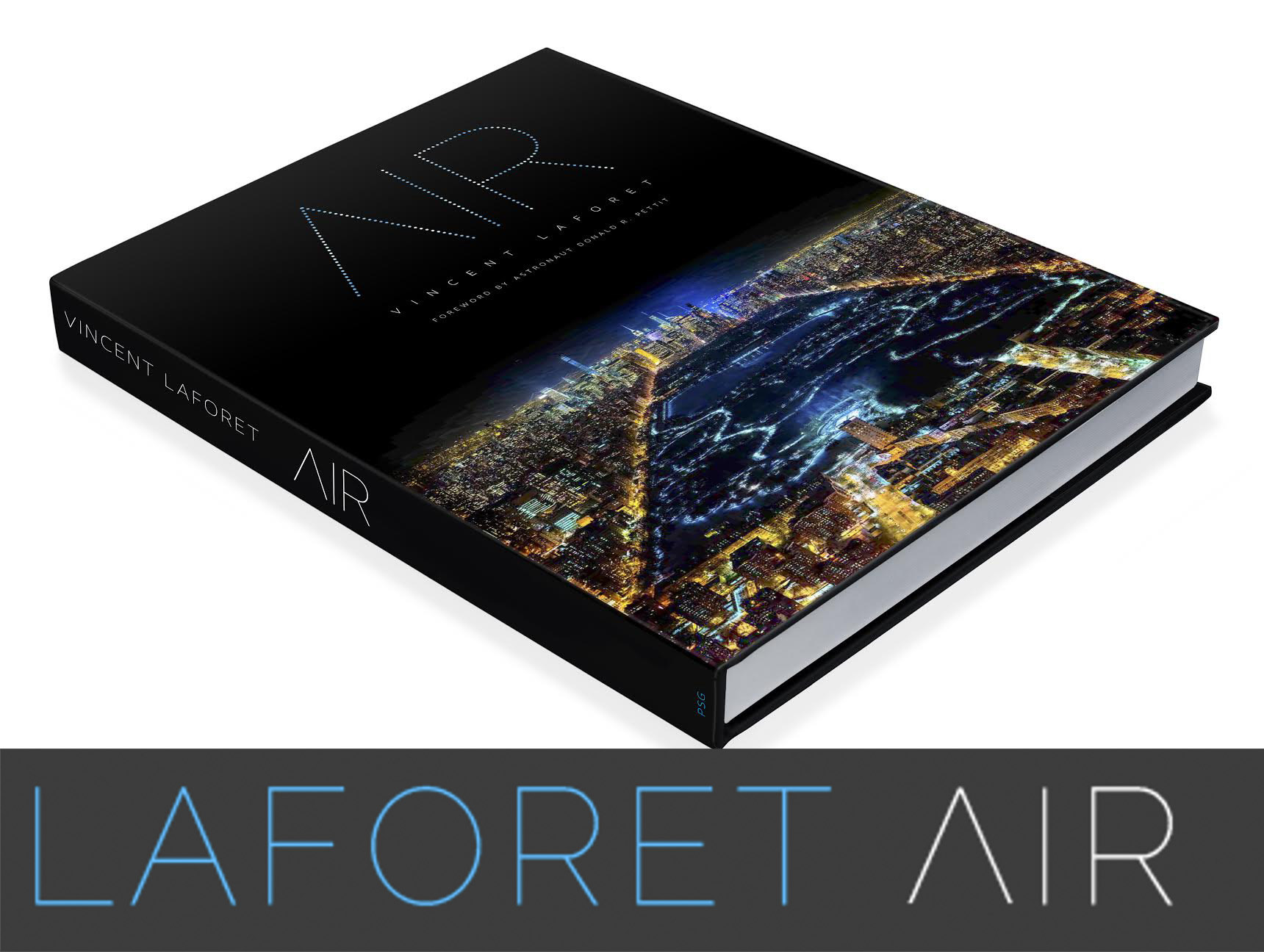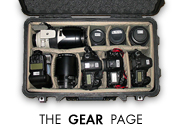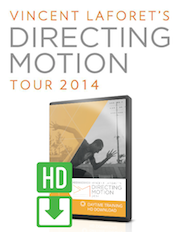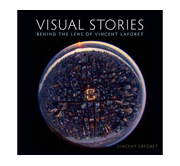Fireworks Show Fizzles at The Great Wall
Wow–what a night I just spent on the Great Wall of China. I think the best way to tell this story is step by step, because it sure was a roller coaster day that ended in something that could have been spectacular but fell just short.
At 11 a.m., more than 12 hours before the fireworks for the end of the Opening Ceremonies were to be set off, I decided that I wanted to go cover the fireworks on the Ju Yong Pass of the Great Wall of China. I couldn’t think of a more genuine place to make a symbolic photo of the start of these games.
First hurdle: When the hotel calls to get me a car, they end up speaking with the police station and are informed that the Great Wall is closed to the public and the media. Maybe it’s open to the public, they say–but definitely closed to the media. Hmmm.
I decide the only way to get to the Great Wall is on the official Media bus that leaves from the Main Press center in 25 minutes. Bus MB29. So I throw things into a bag and run out the door to head over to the Main Press Center.
Once I arrive, and after 30 minutes of walking from one volunteer to another (with 65 pounds of camera gear on my back in the sweltering humidity,) I find out that bus MB29 does not exist.
Time for Plan B.
I find out that a two of my friends from other organizations (who have cars w/ official Olympic Lane passes) are going out there. I beg my way into one of their cars. (Huge thanks to the person who allowed me to do this–you know who you are and I won’t soon forget.)
We start to head out to the Great Wall, but as we leave the Main Press Center we’re told by a member of the EPA news agency that the wall will be closed down. TV apparently has exclusivity on this event… still, undaunted and perhaps a bit stubborn, we decide to give it a try. We’re determined to make this photograph, exclusivity or not.
One hour later we are at the base of the Great Wall. We pull up to a group of locals and ask where we should go to photograph the fireworks.
“Fireworks? What fireworks?” is the answer we get from the local police officer.
Are we at the right place?
With nowhere else to go, we make our way to the closest press center, a site near the finish line of cycling competition.
The venue photo manager is apparently completely unaware of any fireworks taking place that night. It’s news to him. This isn’t looking good at all. There is no sign of anyone from any TV station either.
Dozens of calls to everyone we know go by, and still no word. We could be at the right place–or it could be at one of three other locations possibly. No one is sure.
It’s been over an hour and we still have nothing.
Finally one volunteer informs us that there will be fireworks. That they will either be at 8:08 p.m. or 11:28 p.m.; which exactly, he isn’t sure.
OK–we’re getting somewhere.
A few minutes later, and the next volunteer tells us the fireworks will take place to the east.
Then another points to the west. “Definitely there,” he says. “Well, possibly, to the east,” he says confidently, making us anything but confident of anything at the moment.
Half an hour later a police officer points to the south–he knows of a secret road we can take to get a good vantage point he informs us. But we’ll have to hike quite a bit, and in total darkness through the woods. Not really the best idea we decide. Too dangerous.
And then five minutes later, another person points to the north.
I’m not making this up.
The next bit of news we get: The fireworks will last all of eight seconds.
This HAS to be misinformation… HAS to be. But no one can confirm anything at all at this point, and the duration is the least of our worries. If they go off at all and we can see them somehow– now that would be a bonus!
I find two television people and ask them if they know about the fireworks.
“Fireworks? You mean, like, today?” one says, looking at me as if though I had just landed from Mars.
Time to go back to my spaceship apparently.
It’s now 6 p.m.–we’ve been here for 3 hours. And we’ve just decided that if it’s going to happen at all, it has to be to the east. We start to place our cameras–most of us have one tripod and a few smaller arms and clamps to mount a second or third camera and fire them off with remotes.
I find my spot. Finally–a nice angle with a foreground and background. Layers are always good, not to mention silhouettes, for any fireworks photo. But it’s getting foggier and foggier by the minute. And we’re losing the mountain in the background. As the night starts to fall… no lights are coming on. In fact we’re starting to completely lose the Great Wall altogether.

The initial shot. Adjusted to the right when we hear the fireworks will likely come from the right. Photograph by Vincent Laforet for NEWSWEEK
I have no frame to illustrate the following instance–because everything then goes pitch black. As the sun sets, we are in almost total darkness, with the exception of a yellow glow from the highway beneath us, which is now completely obscuring the Great Wall in the background due to the haze picking up that light. We’re shooting into “mush.”
At this point–the 5 of us on that wall–every single one of us is ready to throw in the towel. This is looking like it’s going to be a total loss. For one, we’re not even sure there’s going to be a fireworks show. Second, we now can’t see any part of the Great Wall.
Total disaster.
But we wait. We are “professionals” and we can’t afford to be “that” photographer… the one that decides to pack up and go back empty handed… only to find out s/he made a colossal mistake and missed an amazing image dues to his/her impatience.
Two hours later, a faint glimmer appears. No way!!! They have turned the lights of The Great Wall!!!!
Amazing–we may just pull this one off!!! Photographers are literally cheering from all sides of the wall.
One problem: we’re still not sure where exactly the fireworks are going to be fired from. A local translator somehow manages to reach the fireworks company and the news is not great. The fireworks are going to be fired much more to our right than we planned. We all scramble to adjust our cameras. At least things are going OK for now. There is a faint glimmer of light at the end of the tunnel…
Then 10 p.m. strikes and the building to the right goes completely dark. Totally black.
Did a fuse box blow???
Photographers are now shouting angrily. In panic. The the translator starts to shout at the military guards who are on watch 24/7 on this section of the wall.
We get word back: the lights will be on in 5-7 minutes. Maybe.
15 minutes later the lights are back on. Unfortunately the opening ceremonies are running late. Which means making our deadline is going to be even tougher. Newsweek’s magazine pages are closing within hours of the conclusion of the ceremonies.
Wow, this is bad news.
We wait. There’s nothing we can do about that now. We’ve been here twelve hours now, and all we can do is hope for the best. There’s nothing we can do to speed things up or change the magazine’s deadline. That too is completely out of our hands.
Then, midnight strikes.
And the unthinkable happens: The Great Wall goes dark!
There are a few cries but they’re subdued compared to previous ones–mostly we know it’s a total disaster. Even if the lights are turned back on, it takes them 5-10 minutes to power up to full brightness. We hear that they are raising the Olympic flag back in the Bird’s Nest, which signals the end of the opening ceremonies.
Is the wall on a timer of sorts? Is that why the lights went off almost exactly at midnight? Can the Great Wall possibly be set on a timer!? Can they find the guy to go back up and turn them in time? Probably not. The big question is: will they now wait to fire the fireworks until the lights are back on? Or will they fire then on ti..
Before we can even finish asking the question – the fireworks go off.
For all of 16 seconds!
I mange to squeeze two frames off (on 3 different cameras for a total of 6.) The photographer to the left of me decides to try to re-frame his camera. He doesn’t even get one frame off before the fireworks have concluded. Here is what I did manage to get – it’s OK- but you can imagine how much nicer the photographs would have been had the Great Wall been lit.
And
In the end, although it took us more than 12 hours of effort, a few hundred very steep steps up and down the Great Wall, I know that the picture will likely never make it into the magazine pages. It’s now 3:30 a.m. and I’m completely spent–mentally and physically. I have to get up in 4 hours to go to my first Olympic assignment. Not the best start to the Olympics to say the least…
That being said: I was able to spend the night with a great friend on the Great Wall of China trying to make an iconic image, seven years after we’d gone on a trip together to China and to the Great Wall. Being on this historic landmark was an incredible honor, truth be told. It was pretty amazing sending text messages from the top of the wall back to my editors in New York and getting responses back within seconds, almost literally from the other side of the earth. It’s an experience I wouldn’t change for anything. Definitely better to me than being trapped inside the opening ceremonies theater in an assigned seat with 600 other photographers. I’d do it again in a heartbeat. But I’d make an 8 minute exposure this time–as opposed to an 8 second one–to get the lights and the fireworks in the frame all at once…(No… that probably wouldn’t have worked either!)
So why did they turn off the lights you ask? One of the answers we got: so that people could “better see” the fireworks!


















Sorry to hear about that Vincent. Sounds like the situation over there is a little fubar thus far. I shot fireworks over the 4th in my little town, not an assn, just for the heck of it, but my first location I wanted to shoot from to have a church in the foreground didn’t work because the fireworks were in the opposite direction. I had to run a few blocks away just to salvage something, I thought I was the only one this sort of thing happened to.
Have you covered an Olympics before? I’m just curious if some of the stories I’m hearing about mistakes, mis-information etc from these Olympics is because the event is an organizational nightmare anyway with so many people and events, or if it’s because its in China and they are being cautious and security minded?
It’s kinda ironic that in China, which has the Great Wall, an attraction known all over the world, and a country which is recognized as having invented fireworks, they wouldn’t have a good fireworks show at the Great Wall.
Been enjoying the posts, great work.
” It’s an experience I wouldn’t change for anything. Definitely better to me than being trapped inside the opening ceremonies theater in an assigned seat with 600 other photographers. I’d do it again in a heartbeat.” That’s the coolest part of this whole experience that’s Olympic! Way cool.
It’s a nice shot. Good job making it happen despite all that went wrong. Sounds like you won’t be sleeping much these next few weeks. Nevertheless, enjoy the games!
A true testament to your perseverance.
Which tripod did you use? Just kidding. Keep up the effort and thanks for posting these entries. It’s a great way to get an insider perspective on the Games.
Good luck shooting.
Wow! What a story. I’ve been to China and I can kind of understand the trouble. Though watching the opening ceremony and how they timed it all together, I could not reconcile it with my personal experience when everything is always uncertain.
Excellent
I really like the way you managed to capture the fireworks from this corner. They have done magnificent fireworks and this Olympic Games are very much different from the previous. Human spirit and values are much more visible and expressed deeply.
I like your first photos taken here in Forbidden City in B&W. It looks like you took it with your Leica M8. They are so clean with firm composition.
Best regards!
wow Vincent what a nice shot… I am sure it was worth every bit of trouble…
Thanks for sharing the behind the scenes on this, it is truly amazing to hear what you go through to get a chance at a great shot. Keep up the incredible work!
Нерациональное употребление материальных благ часто является вернейшим путем к величайшим невзгодам.